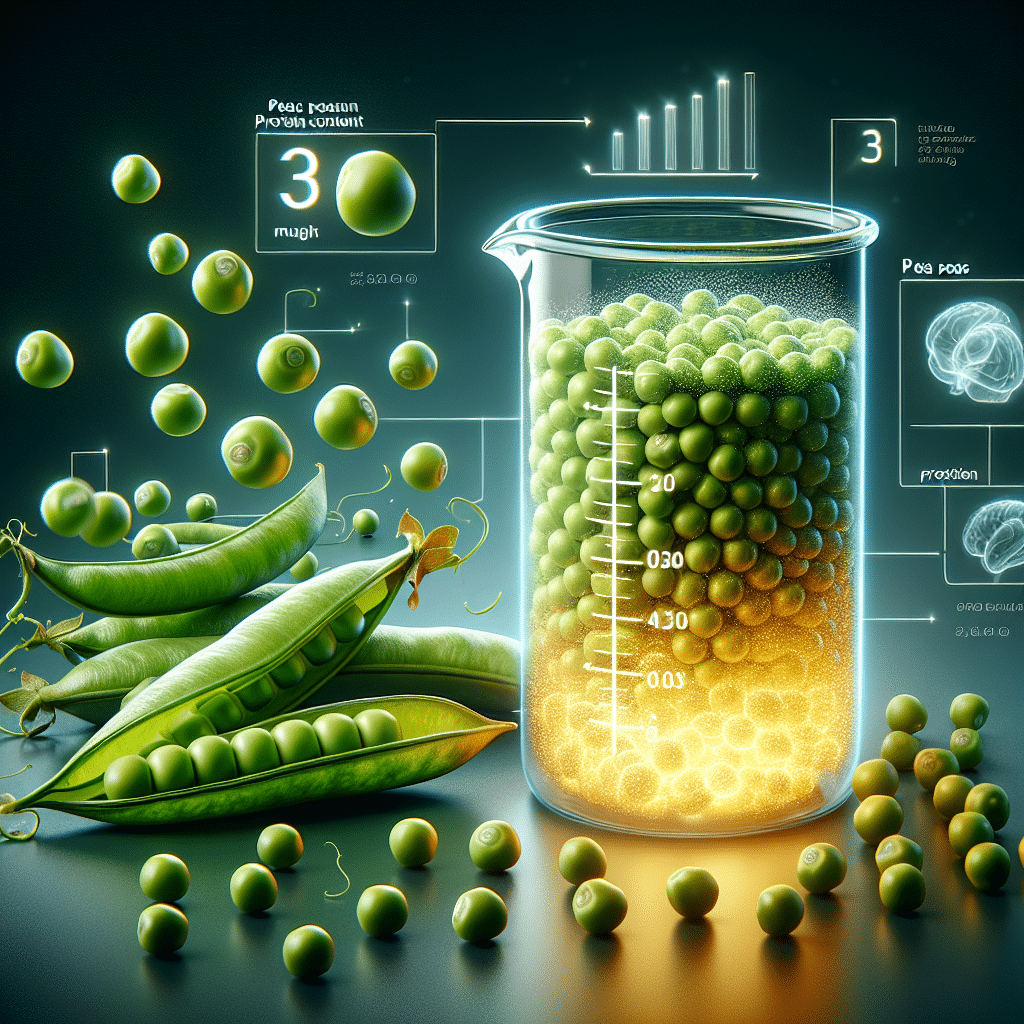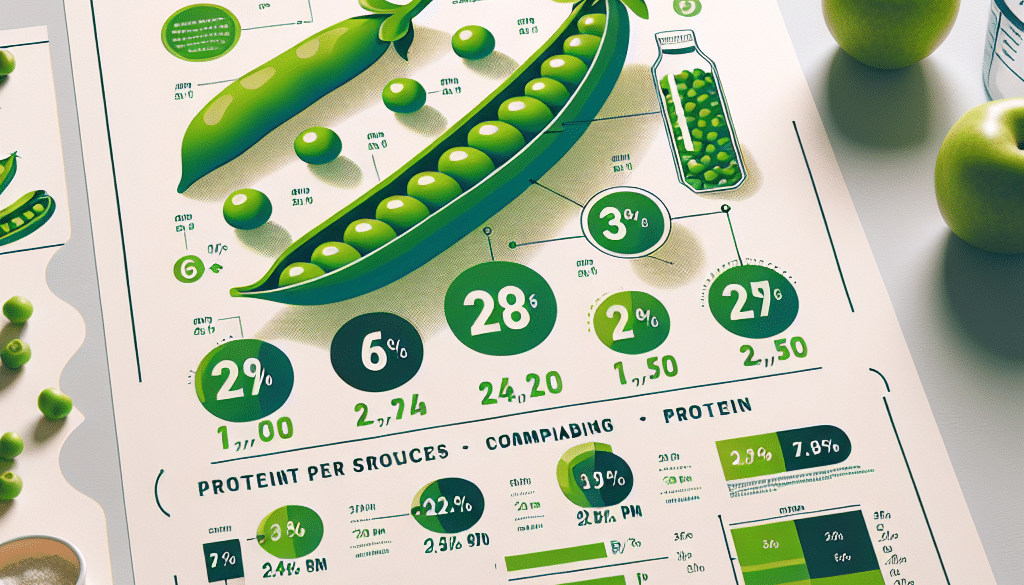Peas Protein Content: How Much is There?
-
Table of Contents
Pea Protein Content: How Much is There?

Pea protein has gained significant popularity in recent years as a plant-based alternative to animal-based protein sources. With the rise in veganism and the increasing demand for sustainable and environmentally friendly food options, pea protein has emerged as a viable solution. But how much protein does pea protein actually contain? In this article, we will explore the protein content of pea protein and its benefits.
The Protein Content of Pea Protein
Pea protein is derived from yellow peas, also known as Pisum sativum. These peas are processed to remove the starch and fiber, leaving behind a concentrated protein powder. The protein content of pea protein can vary depending on the brand and processing methods, but on average, it contains around 80% protein.
This high protein content makes pea protein an excellent choice for individuals looking to increase their protein intake. Whether you are an athlete, a bodybuilder, or simply someone who wants to incorporate more protein into their diet, pea protein can be a valuable addition.
The Benefits of Pea Protein
Pea protein offers several benefits that make it an attractive option for individuals seeking a plant-based protein source. Here are some of the key advantages:
- Complete Amino Acid Profile: Pea protein contains all nine essential amino acids, making it a complete protein source. Essential amino acids are those that the body cannot produce on its own and must be obtained through diet. Having a complete amino acid profile is crucial for muscle growth, repair, and overall health.
- Easy Digestion: Pea protein is easily digestible, making it suitable for individuals with sensitive stomachs or digestive issues. Unlike some animal-based proteins, pea protein does not cause bloating or discomfort.
- Rich in Branched-Chain Amino Acids (BCAAs): BCAAs are a group of three essential amino acids – leucine, isoleucine, and valine. These amino acids play a vital role in muscle protein synthesis and are particularly beneficial for athletes and individuals engaged in intense physical activity. Pea protein is naturally rich in BCAAs, making it an excellent choice for muscle recovery and growth.
- Low Allergenicity: Pea protein is hypoallergenic and does not contain common allergens such as gluten, dairy, soy, or nuts. This makes it suitable for individuals with food allergies or intolerances.
- Sustainable and Environmentally Friendly: Pea protein is derived from yellow peas, which require less water and have a lower carbon footprint compared to animal-based protein sources. Choosing pea protein over animal-based proteins can contribute to a more sustainable and environmentally friendly food system.
How to Incorporate Pea Protein into Your Diet
There are numerous ways to incorporate pea protein into your diet. Here are some popular options:
- Protein Shakes: Pea protein powder can be mixed with water or plant-based milk to create a protein shake. This is a convenient and quick way to increase your protein intake, especially after a workout.
- Baking: Pea protein powder can be used as a substitute for flour in baking recipes. It adds a protein boost to your favorite baked goods without altering the taste significantly.
- Smoothies: Add a scoop of pea protein powder to your favorite smoothie recipe for an extra protein kick. This is a great option for those who prefer a more natural and whole-food approach to protein supplementation.
- Protein Bars: Pea protein is a common ingredient in many plant-based protein bars. Look for bars that contain pea protein as a primary protein source for a convenient on-the-go snack.
Summary
Pea protein is a plant-based protein source that offers numerous benefits. With an average protein content of around 80%, it provides a substantial protein boost for individuals looking to increase their protein intake. Pea protein is easily digestible, has a complete amino acid profile, and is rich in BCAAs. It is also hypoallergenic and environmentally friendly. Incorporating pea protein into your diet can be done through protein shakes, baking, smoothies, and protein bars.
About ETprotein
ETprotein is a reputable protein Chinese factory manufacturer and supplier, renowned for producing, stocking, exporting, and delivering the highest quality organic bulk vegan protein and plant proteins. Their offerings, characterized by a neutral taste, non-GMO, and allergen-free attributes, cater to a diverse range of industries. ETprotein specializes in exporting and delivering tailor-made protein powder and finished nutritional supplements, ensuring comprehensive solutions to meet all your protein needs.
As a trusted company by leading global food and beverage brands and Fortune 500 companies, ETprotein reinforces China’s reputation in the global arena. For more information or to sample their products, please contact them at sales(at)ETprotein.com today.














